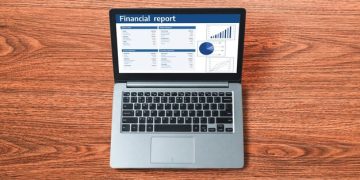Conquer Your Finances: Overcome Personal Budgeting Challenges

Personal budgeting challenges are common, but with the right strategies like setting achievable goals, tracking expenses meticulously, and adjusting plans when needed, you can overcome obstacles and maintain financial stability.
Budgeting can feel like navigating a minefield of challenges, but it’s a critical skill for financial well-being. From unexpected expenses to inconsistent income, life throws curveballs that can derail even the most meticulous budget. Personal budgeting challenges: overcome common obstacles and stay on track, is about giving yourself the tools to not only create a budget, but to stick with it through thick and thin.
Understanding the Psychology Behind Budgeting Blocks
Budgeting isn’t just about numbers; it’s deeply intertwined with our emotions and habits. Many people face internal resistance when trying to create and stick to a budget. Understanding the psychological factors at play is crucial for addressing the root causes of budgeting challenges.
Fear of Restriction
One of the most common psychological blocks is the fear of restriction. Many people associate budgeting with deprivation and a loss of freedom. This fear can lead to procrastination and avoidance when it comes to creating a budget or sticking to one.
Emotional Spending
Emotional spending, or spending as a response to feelings like stress, sadness, or boredom, can quickly derail a budget. Understanding the triggers for emotional spending is essential for developing healthier coping mechanisms.
- Identify your triggers for emotional spending.
- Find alternative ways to cope with stress, such as exercise or meditation.
- Set realistic spending limits and stick to them.
- Track your spending to identify patterns and areas where you can cut back.
By recognizing these psychological barriers, individuals can develop strategies to overcome them, fostering a healthier and more sustainable approach to personal finance. Addressing the emotional aspects of budgeting is just as important as the mathematical aspects.

Tackling Unpredictable Income Streams
For freelancers, entrepreneurs, and those in seasonal industries, income variability is a significant budgeting challenge. It’s difficult to create a stable budget when your income fluctuates from month to month. However, with careful planning and adaptable strategies, managing unpredictable income streams is possible.
Calculate Average Income
Start by calculating your average monthly income over the past year. This will provide a baseline for budgeting purposes. Even with fluctuations, having an average figure helps you understand your overall financial picture.
Prioritize Essential Expenses
Determine your essential expenses, such as rent, utilities, and groceries. These are the non-negotiable costs that must be covered each month. Ensure that your budget prioritizes these expenses, even during months with lower income.
- Track your income diligently each month.
- Adjust your discretionary spending based on your current income.
- Build an emergency fund to cover expenses during low-income months.
- Consider creating multiple budget scenarios for different income levels.
By taking a proactive approach to managing unpredictable income, individuals can achieve financial stability and peace of mind, even in the face of uncertainty.
Curbing Lifestyle Inflation and Overspending
As income increases, it’s tempting to upgrade your lifestyle, but this can lead to lifestyle inflation, where spending increases in proportion to income. Overspending, regardless of income level, is another common budgeting challenge. Curbing these tendencies is essential for long-term financial health.
Differentiate Needs vs. Wants
Learn to distinguish between needs and wants. Needs are essential for survival, while wants are discretionary expenses. Prioritize needs and limit your spending on wants to avoid overspending.
Practice Mindful Spending
Mindful spending involves being aware of your spending habits and making conscious decisions about where your money goes. Before making a purchase, ask yourself if it aligns with your values and financial goals.

- Set clear financial goals and align your spending with those goals.
- Track your spending to identify areas where you’re overspending.
- Create a waiting period before making non-essential purchases.
- Find free or low-cost alternatives to expensive activities.
By curbing lifestyle inflation and overspending, individuals can achieve financial independence and build a secure future. It’s about making conscious choices that align with your values and long-term goals.
Managing Debt and Interest Payments
Debt can be a significant obstacle to effective budgeting. High interest payments can eat into your income, making it difficult to save or invest. Managing debt and interest payments effectively is crucial for regaining control of your finances.
Prioritize High-Interest Debt
Focus on paying off high-interest debt, such as credit card debt, first. The sooner you eliminate this debt, the less you’ll pay in interest over time.
Explore Debt Consolidation Options
Consider debt consolidation options, such as balance transfers or personal loans, to lower your interest rates and simplify your payments. This can free up cash flow for other financial goals.
- Create a debt repayment plan and stick to it.
- Negotiate lower interest rates with your creditors.
- Avoid taking on new debt unless absolutely necessary.
- Consider using the snowball or avalanche method for debt repayment.
By managing debt and interest payments effectively, individuals can improve their financial outlook and achieve their long-term financial goals. It’s about taking control of your debt and making a plan to eliminate it as quickly as possible.
Building an Emergency Fund for Unexpected Setbacks
Life is full of surprises, and unexpected expenses can quickly derail a budget. Having an emergency fund is essential for weathering financial storms and maintaining stability. Building an emergency fund should be a top priority for anyone who wants to achieve financial security.
Set a Savings Goal
Determine how much you need to save for your emergency fund. A general rule of thumb is to have three to six months’ worth of living expenses saved.
Automate Your Savings
Automate your savings by setting up automatic transfers from your checking account to your savings account each month. This makes saving effortless and ensures that you consistently contribute to your emergency fund.
- Treat your emergency fund as a non-negotiable expense in your budget.
- Start small and gradually increase your savings contributions over time.
- Keep your emergency fund in a separate, easily accessible account.
- Avoid dipping into your emergency fund unless it’s a true emergency.
By building an emergency fund, individuals can protect themselves from unexpected setbacks and maintain financial stability. It’s about having a safety net to fall back on when life throws you a curveball.
Staying Consistent and Adjusting Your Budget Over Time
Budgeting is not a one-time event; it’s an ongoing process that requires consistency and adjustment. Over time, your income, expenses, and financial goals will change, so it’s important to review and update your budget regularly. Staying consistent and adaptable is key to long-term budgeting success.
Regularly Review Your Budget
Set aside time each month to review your budget and track your progress. Identify areas where you’re doing well and areas where you need to make adjustments. Regular review helps you stay on track and make informed financial decisions.
Be Flexible and Adaptable
Be prepared to adjust your budget as needed to accommodate changes in your life. Whether it’s a job loss, a new baby, or a change in interest rates, flexibility is essential for maintaining financial stability.
- Use budgeting tools and apps to track your spending and monitor your progress.
- Seek advice from a financial advisor if you’re struggling to stay on track.
- Celebrate your successes and learn from your mistakes.
- Remember that budgeting is a journey, not a destination.
By staying consistent and adjusting your budget over time, individuals can achieve their financial goals and create a secure future. It’s about making budgeting a habit and adapting to life’s changes along the way. Continuous commitment and flexibility guarantee long-term financial success.
| Key Point | Brief Description |
|---|---|
| 🎯 Setting Realistic Goals | Establish achievable financial goals to stay motivated and focused. |
| 💰 Tracking Expenses | Monitor where your money goes to identify spending patterns and areas to cut back. |
| 🛡️ Building Emergency Fund | Create a safety net for unexpected financial setbacks. |
| 🔄 Regular Adjustments | Review and adjust your budget as your financial situation changes. |
Frequently Asked Questions
▼
Start with tracking your expenses for a month to understand where your money is going. Then, create a simple budget allocating funds based on your income and financial goals.
▼
Common mistakes include not tracking expenses, setting unrealistic goals, ignoring irregular expenses, and failing to review and adjust your budget regularly.
▼
Having an emergency fund is crucial. If unexpected expenses arise, use your emergency fund to cover them without derailing your budget. Adjust other categories temporarily if needed.
▼
Popular budgeting tools include Mint, YNAB (You Need a Budget), Personal Capital, and PocketGuard. These apps help you track expenses, set goals, and manage your budget effectively.
▼
You should review your budget at least once a month to track your progress and make any necessary adjustments. More frequent reviews may be needed if your income or expenses fluctuate significantly.
Conclusion
Overcoming personal budgeting challenges requires a combination of knowledge, discipline, and adaptability. By understanding the psychological factors at play, managing unpredictable income, curbing lifestyle inflation, and building an emergency fund, you can take control of your finances and achieve your long-term goals. Remember that budgeting is a journey, not a destination, and consistency is key to success!





